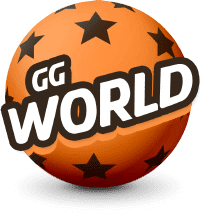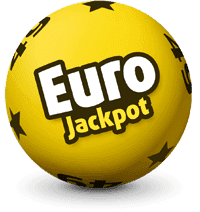
Lotteries have fascinated people for centuries. The idea of turning a few dollars into millions overnight is undeniably attractive. But can you really improve your chances of winning, or are most strategies just myths wrapped in hope? This article explores the most common approaches, separates facts from fiction, and provides a balanced look at whether it’s worth the effort and money.
Can Buying More Tickets Really Improve Your Odds?
At its core, the lottery is a game of probability. The more tickets you buy, the more possible number combinations you cover. Technically, buying more tickets does increase your odds, but the improvement is often minimal compared to the cost.
For example, if the odds of winning are 1 in 300 million, purchasing 100 tickets only changes your odds to 100 in 300 million – or roughly 1 in 3 million. That’s still astronomically unlikely. The cost of those 100 tickets often outweighs the minuscule bump in probability.
For those who prefer bigger international draws, it’s easy nowadays to play EuroJackpot lottery online with just a few clicks. The jackpots are enormous, but remember – the odds remain slim no matter which game you choose.
Are Lottery Syndicates Worth It?
Syndicates, also known as lotto groups, pool money from multiple players to purchase large numbers of tickets. The appeal is simple: more tickets, more chances.
- Pros:
- Access to thousands of ticket combinations at a fraction of the cost.
- Shared excitement and teamwork.
- Higher likelihood of winning small prizes.
- Cons:
- Winnings must be shared among all members.
- Requires trust and organization.
- Syndicate scams exist, especially online.
In practice, syndicates are one of the few practical ways to meaningfully increase odds without breaking the bank.
Does Choosing “Rare” Numbers Give You an Edge?
A common belief is that selecting less popular numbers will somehow increase your chances. The reality: all numbers are drawn randomly and equally. Whether you pick birthdays, anniversaries, or obscure numbers, your odds of winning are identical.
Where rare numbers matter is in jackpot sharing. If you pick numbers that fewer people choose, you may avoid splitting the prize if you win. For example, many players choose numbers between 1 and 31 (birthdays). Numbers above 31 are less common, so choosing them could reduce the likelihood of sharing winnings.
If you’re curious about how certain number patterns have played out in the past, you can always check Powerball results here for some perspective. Just keep in mind that past draws don’t influence future ones.
READ ALSO: The Mathematics of Lottery Wins: Why Some Numbers Appear More Often
Which Strategies Are Myths and Which Are Real?
Here is a breakdown in list form of popular lottery myths vs. proven realities:
Myths
- Hot numbers have a higher chance of appearing.
False – past results don’t affect future draws. - There are guaranteed systems to win.
False – unless you buy every possible combination (impractical). - Quick picks never win.
False – statistically, quick picks win just as often as manual picks. - Winners always come from certain regions.
False – draws are random, not geographic.
Realities
- Buying more tickets slightly improves odds, but not significantly.
- Lotto syndicates can expand chances affordably.
- Choosing uncommon numbers may help avoid splitting jackpots.
- Responsible play and setting a budget is the only sustainable strategy.
How Do the Costs Compare to the Potential Rewards?
A smart way to evaluate lottery participation is through a cost vs. benefit table:
| Strategy | Cost Implication | Odds Improvement | Potential Drawback |
|---|---|---|---|
| Buying more tickets | High | Small | Expensive, limited impact |
| Joining a syndicate | Low-Medium | Moderate | Shared prizes, trust required |
| Picking rare numbers | None | None | Only affects prize-sharing |
| “Guaranteed” systems | Very High | None | Often scams, financial loss |
The table highlights a crucial point: lotteries are designed to generate revenue, not winners. Most strategies either cost too much or provide only marginal improvements.
Should You Trust “Guaranteed” Systems?
There are countless books, websites, and so-called gurus promising foolproof systems to crack the lottery. Most of these are marketing scams. Let’s explore two main claims:
Claim 1: Mathematical Systems
These promise to “wheel” numbers or reduce the pool of possible draws. While some methods do cover more number combinations, they do not increase the probability of a winning draw. They simply reorganize numbers in ways that can look scientific but offer no genuine advantage.
Claim 2: Psychic or Superstitious Approaches
Numbers from dreams, lucky charms, or astrologers often sell the illusion of control. But these are purely psychological tricks. The lottery remains unaffected by human beliefs or rituals.
The takeaway: anyone claiming a guaranteed method is misleading you.
What About Playing International Lotteries?
Thanks to online platforms, players can now enter international draws. The U.S. Powerball, for example, is famous for record-breaking jackpots, and many platforms allow you to click and play Powerball online no matter where you live.
However, the odds remain steep. For instance, the Powerball jackpot odds are about 1 in 292 million. The main benefit of international play is access to bigger prizes, not better odds.
Is Responsible Play the Ultimate Strategy?
While many chase complex systems, the smartest approach is surprisingly simple: play responsibly, with limits. This involves two key sub-strategies:
1. Set a Budget
Treat lottery tickets like entertainment, not investment. Decide on an amount you can comfortably spend monthly and stick to it.
2. Focus on the Fun
View the lottery as a fun pastime with the small chance of an exciting surprise. The thrill of anticipation is often more valuable than the actual odds.
By reframing the lottery this way, you avoid financial stress while still enjoying the excitement.
Final Thoughts: Can You Truly Boost Your Odds?
At the end of the day, lotteries are designed to be random and profitable for organizers. There is no secret formula. The most effective methods – buying more tickets or joining syndicates – only marginally improve chances and come with trade-offs.
- Myths about “hot numbers” or “guaranteed systems” are false.
- Picking rare numbers doesn’t change your odds, but may reduce prize sharing.
- Joining a syndicate is the most practical strategy for better odds.
- Responsible play ensures you don’t overspend chasing unlikely wins.
Ultimately, the lottery should be approached with realistic expectations. It’s entertainment, not a financial plan. The possibility of winning is what fuels the excitement, even if the probability remains vanishingly small.






